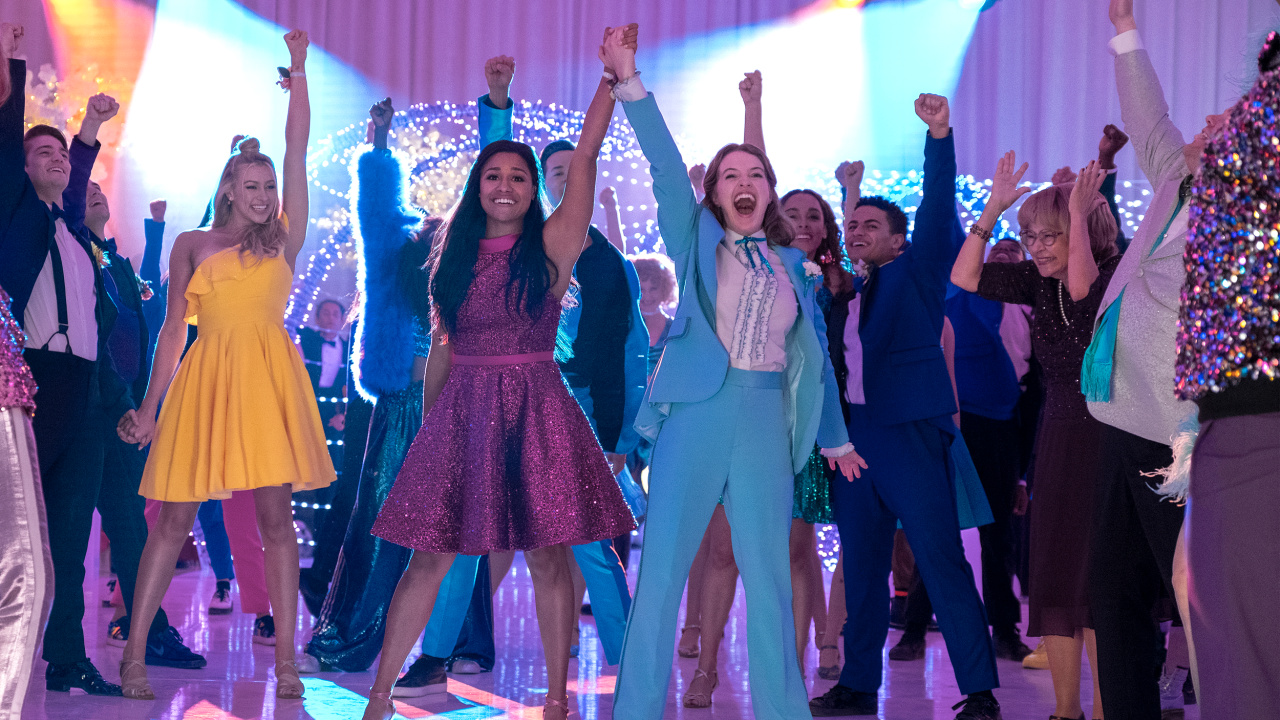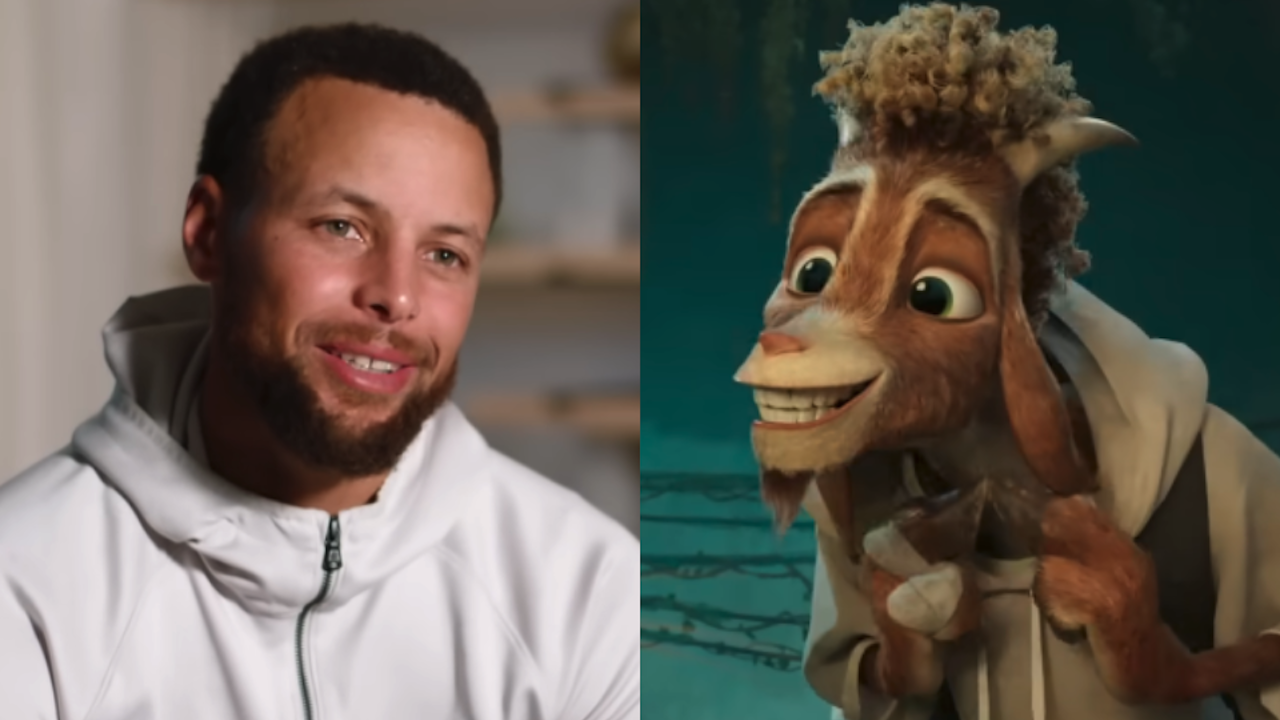Part Two Of Our Interview With Prom Screenwriter Katie Wech

Your Daily Blend of Entertainment News
You are now subscribed
Your newsletter sign-up was successful
Hopefully you've already caught the first half of my interview with Katie Wech, the screenwriter whose first produced film Prom is hitting theaters this weekend. Now read below for the second half of our great hour-long conversation, in which we talk about the specific details of working as a screenwriter in collaboration with a studio like Disney, why the film has great colorblind casting but no gay characters, what kind of thought she's put into a potential sequel, and which teen movies she thinks Prom most resembles.
Read it all below whether or not you've caught the first half (though I do recommend reading it), and see Prom in theaters now.
When developing the script with the studio, and having a lot of voices involved in the process, did that help keep everything on track and get the story where it needed to go?
I was on set every day and I was working with [director] Joe Nussbaum and the studio. It's not typical for the writer to be that involved at that stage but as a result we were able to allow it to evolve and to work collaboratively toward, you know, what is the best version of the scene, given the parameters that we have.
What's the day-to-day thing when you're there on the set?
I was there in video village with Joe and the producer, Justin, kind of just doing the same thing everybody else is doing, which is looking at the screen to make sure it’s the best of what it can be. And I started in television so that was a very natural thing for me to do. But it is unusual, so I’m very lucky.
After working in this collaborative process with the studio, do you have that script that you do kind of want to bang out on your own and get on there as is?
Your Daily Blend of Entertainment News
Sure. I’m obviously writing my own spec material. I’m always pitching and working on material for studios as well but I think yeah. There’s some part of my own voice and storytelling that I would like to just keep for me. Ultimately my main goal as a screenwriter is to write things that people see. And I know that that rarely happens that what you write is what ends up on screen, one hundred percent of the time, even when you’re directing your own material. So it’s a part of the medium itself that I think I’ve reconciled myself to. Maybe some day I’ll write a book.
You’ve got a realistic attitude toward it as opposed to fighting for every single word.
Yeah, I think you’ll just suffer more. You know? I’m sure that there were days when I was pouting and skulking about a certain change that I didn’t love but it’s about coming around eventually to what’s best for the project. And you know, I think also just broadening your view to realizing that you’re having a debate on set about a change that’s being made to your movie that you wrote that’s being made. So if you can kind of just step back and realize it’s all good, then I think that also helps form getting too dark and broody about it.
This might be an unfair question given that it’s a PG movie for Disney, but was there ever going to be a gay character?
You know, we talked about that a lot in fact.
I feel like it would have worked, in this world.
I think it would have worked and I wanted at least for there to be a same sex couple at the dance that you would just see. If nothing else, just to present something that is true and real and more and more common and accepted in the high school, in the life of a high schooler. And I guess we just never found the story to tell, is the reason why it isn’t there. But we definitely weren’t steering clear of it because of fears or ratings issues or any other sort of pre-conceived notion about what it would mean to have a gay character. So maybe the next time around we’ll be able to find one.
There’s really interesting stuff with race in there. I wouldn’t say colorblind, that doesn’t really mean anything, but like there’s a nice sense that race isn't really a factor. You know you’ve got Lloyd and his stepsister and they’re clearly from different ethnicities and I like that about it.
Yeah, I love that. I think some of the casting was brilliant in that regard because it’s just this subtle way of illustrating that that is what the reality is as well now. That it really doesn’t matter as much as it may, I don’t know I think that maybe in the eighties we thought that the prom queen was always gonna be sort of a blonde cheerleader or something. And then there were probably a lot of reasons why that stereotype was established. But I think that’s gone away. And so it does give you a lot of freedom in terms of casting to just find the people you think are best for the roles and you end up with this multi-ethnic cast. Which is exactly probably how it would look in real life.
Do you think you know what happens to these characters when prom is over?
I would love to find out.
I know you can’t plan for a sequel until anyone sees it, but is it something that you think about? Is it something you guys talk about? Do you get superstitious about it?
I think we had so much fun on set and the cast all had so much affection for their characters and for this world that there was always talk of, “Oh, we’ll do it in the sequel.” And nothing would make me happier than to be able to bring back these characters and find them in another stage of life and see what did happen to them.
How would you do it, like meet them over the summer?
That’s a good question. Obviously the audience will decide whether or not these characters in this world warrant revisiting in a sequel. You can’t do it just to churn out another product and be true to the spirit of the movie in the first place, which was always about being as honest as we could and telling the best version of the story that we could. So, yeah, it’s hard. Because of that is it just another dance? Is that really the best way to come back to this world? Or do we find them in the summer? Or do we find some of them but not others? You know, the questions are really fun to ask. Nothing would make me happier than to be able to sit down and start working out the answers.
But you don’t have the plan in your head.R It’s hard to do. You spend so long in your career as a screenwriter trying to sell things and get things made that box office performance was this distant horizon, which, horizon by definition is something that goes away the longer you walk toward it. So, just even getting to this point for me has been such a dream come true that the next step beyond is something that I haven’t had, my head hasn’t even been able to.
Do you think you'll continue doing a lot of writing for PG or PG-13 audiences?
I think it’s one of the places I’ll be. I think it’s nice to be able to write for grownups, but I do think that broadest audience possible is the kind of movie I’m trying to write for. But its also about what material you respond to and what’s interesting and sometimes you get a book or a project sent to you and it’s really dark or really different from what you’re writing. And that’s the reason you want to go for it.
And writers don’t get stuck in niches the way that directors or actors do.
I don’t think so. It hasn’t been my experience so far. Obviously no one’s going to ask me to write a slasher film, but I think I’ve gotten a lot of interesting possibilities that have come my way. So hopefully that will keep happening. Because at the end of the day I think you have to write what you are most passionate about.
Sometimes teen movies or PG movies are graded on a curve, and no matter what critics won't consider it as seriously as they would, say, a Clint Eastwood movie. Does that factor into your thinking at all?
Well, I know that the opinion that matters most to me is the one of the girls who are walking out of the theater right after they’ve seen it. After one of the screenings that we did, there was a group of girls who were high school juniors that kind of accosted me in the hallway to tell me how much they loved it. And it was like, I kind of came home and said, everyone else could hate this movie. That moment is why I do this. So I think that is really the thing I’m gonna try to let be my guiding light for how I end up feeling as to whether this movie is a failure or a success.
I think about those fourteen year-old girls and I think about-- Can’t Hardly Waitcame out when I was fourteen, and I went to see it on my birthday, and that was the movie where I was just like, “I’m in this movie.” Do you have one of those, one of those where you were maybe trying to get in the spirit of in this?
Sixteen Candles is my favorite John Hughes movie, for sure. But I loved Can’t Hardly Wait too, actually.
I think this is more similar in spirit to Can’t Hardly Wait than any other teen movie that I can think of.
Yeah, the reason I like Can’t Hardly Wait is that I like those like, so much can happen, and it has to happen now or it never will! And that intensity is another thing I really wanted to capture. That, the highs and the lows, as Joe always said, the highs are never higher and the lows are never lower than these moments in high school. So it really has the spirit of that. The thing I like about the Hughes movies is the mixture of comedy and drama. That like some things are actually pretty hard hitting but there’s also always just this levity and even a kind of silliness that you can find. I think Sixteen Candles is a good example of that.
Staff Writer at CinemaBlend

